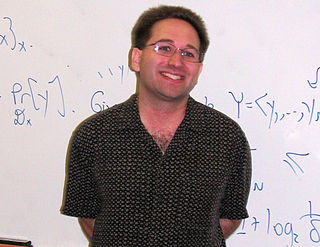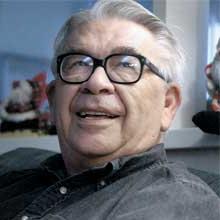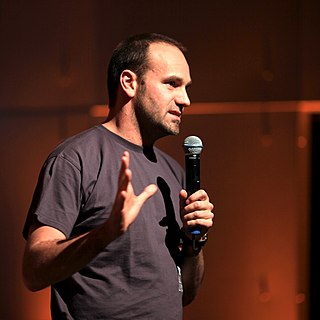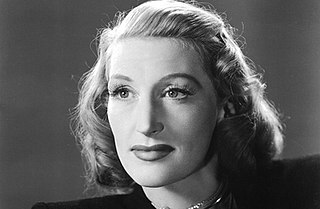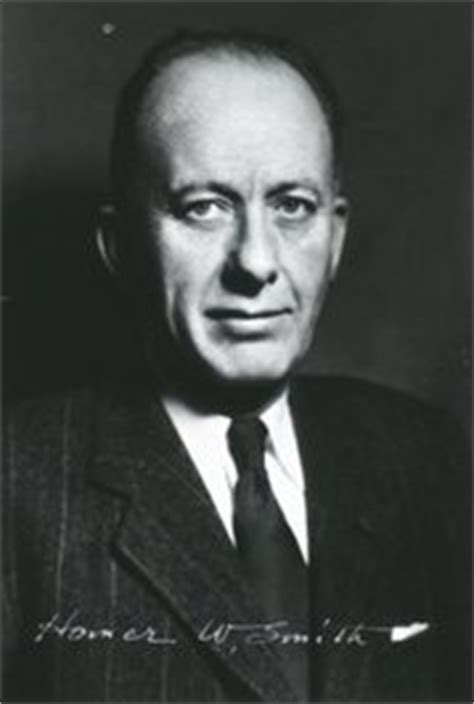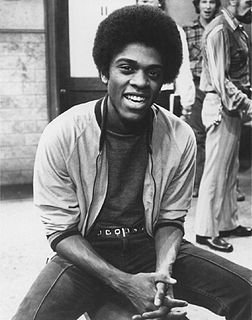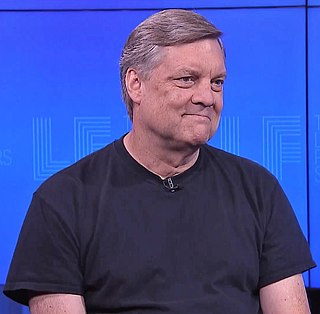Top 686 Recognizing Quotes & Sayings - Page 11
Explore popular Recognizing quotes.
Last updated on April 21, 2025.
If P=NP, then the world would be a profoundly different place than we usually assume it to be. There would be no special value in “creative leaps,” no fundamental gap between solving a problem and recognizing the solution once it's found. Everyone who could appreciate a symphony would be Mozart; everyone who could follow a step-by-step argument would be Gauss; everyone who could recognize a good investment strategy would be Warren Buffett.
When we are going to enter the water ... in the presence of the congregation and under the hand of the president, we solemnly profess that we disown the devil, his pomp, and his angels. After this we are immersed three times, making a somewhat larger pledge than the Lord appointed in the Gospel. Then we are taken up [a reference to the Roman tradition of recognizing a newborn baby as a member of the family]. We first taste a mixture of milk and honey and from that day we refrain from the daily bath for a whole week.
Never has America lost a war ... But name, if you can, the last peace the United States won. Victory yes, but this country has never made a successful peace because peace requires exchanging ideas, concepts, thoughts, and recognizing the fact that two distinct systems of life can exist together without conflict. Consider how quickly America seems to be facing its allies of one war as new enemies.
He looked at her as a man looks at a faded flower he has gathered, with difficulty recognizing in it the beauty for which he picked and ruined it. And in spite of this he felt that then, when his love was stronger, he could, if he had greatly wished it, have torn that love out of his heart; but now when as at that moment it seemed to him he felt no love for her, he knew that what bound him to her could not be broken.
Each contact is an opportunity for your own unique satsang with your Self, not in some strained or contrived way, but by keeping your mind inside your Heart, by trusting the inner guru and by recognizing each moment as perfect in itself and by simply being your Self. This is the true and natural responsibility or rather 'response-ability', the ability to respond effortlessly to the needs of the moment.
The power of understanding symbols, i.e. of regarding everything about a sense-datum as irrelevant except a certain form that it embodies, is the most characteristic mental trait of mankind. It issues in an unconscious, spontaneous process of abstraction, which goes on all the time in the human mind: a process of recognizing the concept in any configuration given to experience, and forming a conception accordingly. That is the real sense of Aristotle's definition of Man as "the rational animal".
Is an out-of-control life challenge making you feel 'out of control' over your entire life? If so, stop lying around doing nothing. Stop sleeping late. Stop watching too much TV. Start recognizing that this lack of a disciplined schedule will only increase your feelings of being out of control of your life.
I think it's just recognizing that who you are is not any of the stuff that you have. It's not any of the things of the ego. Coming to that awareness is a very hard thing for most people to do - but that's an excuse. If you tell yourself it's too hard, then you won't take it on. But right now, for most people, it's almost an impossibility to do so, because they're so attached to "I am what I have"; "I am what I do"; "I am what my reputation is"; or "I am all of this material stuff."
I think the reality is that copyright law has for a very long time been a tiny little part of American jurisprudence, far removed from traditional First Amendment jurisprudence, and that made sense before the Internet. Now there is an unavoidable link between First Amendment interests and the scope of copyright law. The legal system is recognizing for the first time the extraordinary expanse of copyright regulation and its regulation of ordinary free-speech activities.
Free software is part of a broader phenomenon, which is a shift toward recognizing the value of shared work. Historically, shared stuff had a very bad name. The reputation was that people always abused shared things, and in the physical world, something that is shared and abused becomes worthless. In the digital world, I think we have the inverse effect, where something that is shared can become more valuable than something that is closely held, as long as it is both shared and contributed to by everybody who is sharing in it.
There is a metaphysical honour in ending the world's absurdity. Conquest or play-acting, multiple loves, absurd revolt are tributes that man pays to his dignity in a campaign in which he is defeated in advance.... War cannot be negated. One must live it or die of it. So it is with the absurd: it is a question of breathing with it, of recognizing its lessons and recovering their flesh. In this regard the absurd joy par excellence is creation. "Art and nothing but art", said Nietzsche, "we have art in order not to die of the truth."
Literature and the other arts play with pattern - our brains understand our world by recognizing patterns - and with possibility. The arts harness our sharpest senses, sight and sound, and our richest ways of understanding, in language and narrative. They were our first schools before schools were ever invented. They develop our imaginations, extend our possibilities, and deepen what we can all share.
Creative power has to filter through our beliefs, attitudes, emotions, and habits. The more negative and constricted our beliefs and patterns are, the more they block the creative energy. Most people hope that by ignoring negativity, it will go away, but the reverse is actually true. Through recognizing, acknowledging, and experiencing it, the blocked energy can be released. You are then free to replace it with positive beliefs and attitudes.
We are delighted with today’s State Supreme Court ruling allowing marriage equality in California. It is a true testament to advancing equality and to recognizing the right of all Californians to build a future with the person they love. We recently lost Mildred Loving, the woman whose marriage to a man of another race ushered in the Supreme Court ruling that made marriage colorblind. Today’s ruling is another important reminder that love will overcome.
She was getting used to his rhythms and his moods, recognizing the quiet signals that telegraphed who he was. Good and bad, strengths and faults, he was hers forever. As she pulled into the driveway, she spotted Logan coming down the steps from the house, and she waved. She was his forever, too—imperfect as she was. Take it or leave it, she thought. She was who she was. As Logan walked toward her, he smiled as if reading her mind and opened his arms.
In each of us lies sleeping beauty, wasted potential, dying dreams. We sleep and live in dormant twilight, never knowing what it means to live, to love the bits of heaven that we can unearth deep in our hearts; not recognizing that our salvation is ever-present in those parts that we have disowned, denied, forgotten. The thorns of fear thwart faint attempt. The prince is courage, the kiss believing and then with these our life begins.
Most new movements start this way: hundreds or thousands of individuals and groups, working in different fields and different locations, start thinking about change using a common language, without necessarily recognizing those shared values. You just start following your own vector, propelled along by people in your immediate vicinity. And then one day, you look up and realize that all those individual trajectories have turned into a wave.
We should learn to be patient with ourselves. Recognizing our strengths and our weaknesses, we should strive to use good judgment in all of our choices and decisions, make good use of every opportunity, and do our best in every task we undertake. We should not be unduly discouraged nor in despair at any time when we are doing the best we can. Rather, we should be satisfied with our progress even though it may come slowly at times.
Once you start backing into all of that, then you see this incredibly intricate, totally wrong-headed way to do things, but nevertheless has a lot of merit to it for the fact that [Buckminster Fuller] is recognizing much larger patterns, seeking much larger patterns and seeking much larger ways of trying to solve for the problem of unhygienic conditions in slums. They really were unhygienic. Whether his family was living in the slum is debatable but they were unhygienic. That needed to be addressed. He was attempting to address it.
In addition to all of the ratios and goals and parameters and bottom lines, it is fundamental that leaders endorse a concept of persons. This begins with an understanding of the diversity of people's gifts and talents and skills. Recognizing diversity gives us the chance to provide meaning, fulfillment and purpose, which are not to be relegated solely to private life any more than such things as love, beauty and joy. The art of leadership lies in polishing and liberating and enabling those gifts.
I remember in my very first fitting, costume designer Patricia Norris gave me a garment with these intricate stitches - stitches over stitches, because it had been repaired so many times. Once I put it on, she told me that it belonged to an actual slave woman. My heart just stopped. Each one of the stitches had a story, you know. Just recognizing this period I was going to be dancing with was a "come to Jesus" moment.
As I've grown as an artist, I've learned that my mission statement is really self-expression. I don't want anybody to classify my music. I want them to say, "This is somebody who's recognizing his true feelings, his true emotions, ideas, thoughts, opinions, and views on the world, all on one record." I want people to recognize that and to take it and apply it to their own lives. You know what I'm saying? The more and more I get out and talk to different people, I realize they appreciate that - me being unapologetic in whatever views and approach I have.
Listen, the environmental movement is not about protecting the fishes and the birds so much as recognizing that nature is the infrastructure of our communities ... If you're saying the values that drive the environmental movement are uncool and antithetical to America, then I would argue just the opposite. If you think being patriotic is not cool, I'd say that's not true either. I'd say the most patriotic thing you can do is to take care of the environment and try to live sustainably.
Recognizing that the world is governed by a minority, the sexually active, and that they hold sway of a huge majority of the nonsexual, those people too young or too old or too poor or too homely or sick or crazy or powerless to be able to afford sexual partners (or the luxury of systematic, sustained and shared introspection, so sexual in its own way). All advertisements and films and songs are addressed to sexuals, to their rash whims and finicky tastes.
Anyone who does not see the vanity of the world is very vain himself. So who does not see it, apart from young people whose lives are all noise, diversions, and thoughts for the future? But take away their diversion and you will see them bored to extinction. Then they feel their nullity without recognizing it, for nothing could be more wretched than to be intolerably depressed as soon as one is reduced to introspection with no means of diversion.
I'm trying to understand how do we tell lies to ourselves to justify what we've done and what are the consequences of those lies? But actually maybe I also recognize that in turning empathy into a practice for many years, by turning, by forcing myself to separate at some level the humanity of a human being from his or her actions and recognizing that sometimes, even the moral aspects of a human being can contribute to immoral behavior.
I run my company according to feminine principles, principles of caring, making intuitive decisions, not getting hung up on hierarchy or all those dreadfully boring business-school management ideas; having a sense of work as being part of your life, not separate from it; putting your labor where your love is; being responsible to the world in how you use your profits; recognizing the bottom line should stay at the bottom.
Practicing love often means feeling through fear: intentionally opening yourself when you would rather close down, giving yourself when you would rather hide. Love means recognizing yourself as the open fullness of this moment regardless of its contents -- trenchant thoughts, enchanting pleasures, heavy emotions, or gnawing pains -- and surrendering all hold on the familiar act you call 'me'.
I always try and stay one step ahead of people, not looking like I looked like last week, so I can be as anonymous as possible and part of it is just for me. It is fun to just come up with new and bizarre colors for each area of your body and things like that, but there are some parts of it that I just keep wanting to negate myself. I hate waking up in the morning and recognizing the woman in the bathroom mirror.
For me, the experience of not living in America was recognizing that I was American. You don't think about yourself being so culturally encoded, so nationally stamped; you don't discover that when you're a tourist for a month. You see how you reflect the place you're from. When I came back from living in Europe, I was very struck by how I didn't see America as the center of the world in the same way. It's very easy to slip back because America is so powerful. But any place you live is the center of the world.
Awareness is the key. Do we see the stories that we're telling ourselves and question their validity? When we are distracted by strong emotion, do we remember that it is our path? Can we feel the emotion and breathe it into our hearts for ourselves and everyone else? If we can remember to experiment like this even occasionally, we are training as a warrior. And when we can't practice when distracted but KNOW we can't, we are still training well. Never underestimate the power of compassionately recognizing what's going on.
Recognizing that we have the kind of blood we have because we have the kind of kidneys we have, we must acknowledge that our kidneys constitute the major foundation of our philosophical freedom. Only because they work the way they do has it become possible for us to have bones, muscles, glands and brains. Superficially, it might be said that the function of the kidney is to make urine; but in a more considered view one can say that the kidneys make the stuff of philosophy itself.
Some people are more talented than others. Some are more educationally privileged than others. But we all have the capacity to be great. Greatness comes with recognizing that your potential is limited only by how you choose, how you use your freedom, how resolute you are, in short, by your attitude. And we are all free to choose our attitude.
When each citizen submits himself to the authority of law he does not thereby decrease his independence or freedom, but rather increases it. By recognizing that he is a part of a larger body which is banded together for a common purpose, he becomes more than an individual, he rises to a new dignity of citizenship. Instead of finding himself restricted and confined by rendering obedience to public law, he finds himself protected and defended and in the exercise of increased and increasing rights.
Instead of recognizing the State as ‘the common enemy of all well-disposed, industrious and decent men,’ the run of mankind, with rare exceptions, regards it not only as a final and indispensable entity, but also as, in the main, beneficent. The mass-man, ignorant of its history, regards its character and intentions as social rather than anti-social; and in that faith he is willing to put at its disposal an indefinite credit of knavery, mendacity and chicane, upon which its administrators may draw at will.
Now consciousness, what is consciousness? Consciousness is being aware of one's surroundings, recognizing the existence, truth or fact of something; being aware of the very moment, the very instant that you are in; being aware of how you affect the human social, political, and natural ecology you are a part of and how it affects you. Consciousness is being informed and instructed through your groups peculiar culture on the effects of the varied ecologies on your immediate and distant ancestors, and to be aware of their interpretation of that experience.
I had a couple albums out that sold well for who I was at the time and the type of music I played. People started recognizing my name and face and it helped sell bigger venues. I had a bigger spotlight and I had to live up to it but I thrived under that challenge. It expedited the creative process. If I was on stage in front of 300 people instead of 30, I had to work harder at my performances because I had a greater responsibility. It was very exciting, but creative too.
We have not always been in sync on every issue in terms of our core values, in terms of her integrity, her truthfulness, her thoughtfulness, [Angela Merkel] doing her homework, knowing her facts, her commitment to looking out for the interests of the German people first, but recognizing that part of good leadership on behalf of the nation requires engaging the world as a whole, and participating effectively in multilaterally institutions, I think she's been outstanding.
When I'm standing in the middle of the salt flats, where you swear that the pupils of your eyes have turned white because of the searing heat that is rising from the desert, I think of my childhood, I think of my mother, my father, my grandparents; I think of the history that we hold there and it is beautiful to me. But it is both a blessing and a burden to be rooted in place. It's recognizing the pattern of things, almost feeling a place before you even see it. In Southern Utah, on the Colorado plateau where canyon walls rise upward like praying hands, that is a holy place to me.
How does humility manifest itself in leadership and in life? A humble person is more concerned about what is right than about being right, about acting on good ideas than having the ideas, about embracing new truth than defending outdated position, about building the team than exalting self, about recognizing contribution than being recognized for making it.
I had no idea what effect something blockbustering would have. To me, it was just a job that I was trying to do the best I could. We had shot the first five shows before it went on the air. Then, it was this firecracker hit, and people were recognizing me, so it was just nuts. It was overwhelming, insane, wonderful and scary all at the same time. It's really peculiar that people see you on television and then think they have a personal relationship with you. So, they want to touch you, and grab you, and sit down and have lunch with you. It's strange, and you never get used to that.
The Shadow is a moral problem that challenges the whole ego-personality, for no one can become conscious of the shadow without considerable moral effort. To become conscious of it involves recognizing the dark aspects of the personality as present and real. This act is the essential condition for any kind of self-knowledge, and it therefore, as a rule, meets with considerable resistance. Indeed, self-knowledge as a psychotherapuetic measure frequently requires much painstaking work extending over a long period of time.
Legislators in Kansas, Arizona and 23 other states who are properly determined to protect religious freedom can begin by asking themselves: Does any religious conviction justify denying lesbians and gays a basic legal promise of non-discrimination in hiring, public accommodations, and housing? Surely the answer to this question is no. Correcting that inequity would begin the process of recognizing that both sides - gay couples and religious objectors - have rights and that reasonable accommodation is possible only when both sides have something to gain.
At least once a year, I imagine that I am about to die. Looking back as truthfully as I can at my entire life, I give full attention to the things I wish hadn’t occurred. Recognizing these mistakes honestly but without self-recrimination, I try to rejoice in the innate wisdom that allows me to see so bravely, and I feel compassion for how I so frequently messed up. Then I can go forward. The future is wide open, and what I do with it is up to me.
Spiritual leaders teach that waking up is a process, that it doesn't just happen once and for all, but must occur again and again when we realize we have forgotten the miracle of being alive, and in recognizing our forgetfulness, we wake to the miracle once again. In the moments we are awake to the wonder of simply being alive, gratitude flows, no matter our circumstances.
Feminism wasn’t supposed to make us miserable. It was supposed to make us free; to give women the power to shape their fortunes and work for a more just world. Today, women have choices that their grandmothers could not have imagined. The challenge lies in recognizing that having choices carries the responsibility to make them wisely, striving not for perfection or the ephemeral all, but for lives and loves that matter.
I have been told I've got a darkish personality. A few times." Takahashi swings his trombone case from his right shoulder to his left. Then he says, "It's not as if our lives are divided simply into light and dark. There's shadowy middle ground. Recognizing and understanding the shadows is what a healthy intelligence does. And to acquire a healthy intelligence takes a certain amount of time and effort. I don't think you have a particularly dark character.
What makes a sentence, a phrase, a moment, or a scene delightful? Something about recognizing the truth in it, hearing the music in it, understanding, intuitively perhaps, that the words are just right. It's not a matter of even context - delight is not limited to scenes or descriptions of happiness or beauty - but of aesthetic appreciation of the thing itself. As a reader, I find it's that moment when I want to stop reading, and also that moment when I know I can't. Delight is that it's what takes me by surprise and reminds me why I love the literary arts above all others.
I wanted to start a website for teenaged girls that was not kind of this one-dimensional strong character empowerment thing, because one thing that can be very alienating about a misconception of feminism is that girls then think that to be feminists, they have to live up to being perfectly consistent in their beliefs, never being insecure, never having doubts, having all the answers...and this is not true and actually, recognizing all the contradictions I was feeling became easier once I realized that feminism was not a rule book but a discussion, a conversation, a process.
Recognizing the good, not just in one's own personal circumstances, but in the world, makes anything possible. When I am asked about the important characteristics of leadership, being of good, positive mind is at the top of my list. If a leader can focus on the meritorious characteristics of other people and try to play to their strengths as well as find value in even the most difficult situation, she can inspire hope and faith in others and motivate them to move forward.
When we want to help the poor, we usually offer them charity. Most often we use charity to avoid recognizing the problem and finding the solution for it. Charity becomes a way to shrug off our responsibility. But charity is no solution to poverty. Charity only perpetuates poverty by taking the initiative away from the poor. Charity allows us to go ahead with our own lives without worrying about the lives of the poor. Charity appeases our consciences.
You can change your tomorrow if you do something today. Few people understand how the way you live today impacts your tomorrow. Today is the only time we have within our grasp, yet many people let it slip through their fingers, recognizing neither its value nor potential. If we want to do something with our lives, then we must make today matter, because that's where tomorrow's success lies.
Clearly recognizing what is happening inside us, and regarding what we see with an open, kind and loving heart, is what I call Radical Acceptance. If we are holding back from any part of our experience, if our heart shuts out any part of who we are and what we feel, we are fueling the fears and feelings of separation that sustain the trance of unworthiness. Radical Acceptance directly dismantles the very foundations of this trance.
I think that these are the kinds of things that we can debate vigorously. We don't have to ultimately divide over them and I think when we debate, we should do so in a collegial fashion, with a great deal of gentleness and humbleness, recognizing that we can learn from one another. Again, even with people who have moved over from the Kingdom of Christ to the kingdom of the cults, we need to treat them with love and with gentleness and with a heart to restore them to proper life and doctrine.
A crucial turning point in that earlier history occurred when men and women of good will turned aside from the task of shoring up the Roman imperium and ceased to identify the continuation of civility and moral community with the maintenance of that imperium. What they set themselves out to achieve instead - often not recognizing fully what they were doing - was the construction of new forms of community within which the moral life could be sustained so that both morality and civility might survive the coming age of barbarism and darkness.
Part of making good decisions in business is recognizing the poor decisions you've made and why they were poor. I've made lots of mistakes. I'm going to make more. It's the name of the game. You don't want to expect perfection in yourself. You want to strive to do your best. It's too demanding to expect perfection in yourself.
After Gibbs, one the most distinguished [American scientists] was Langley, of the Smithsonian. ... He had the physicist's heinous fault of professing to know nothing between flashes of intense perception. ... Rigidly denying himself the amusement of philosophy, which consists chiefly in suggesting unintelligible answers to insoluble problems, and liked to wander past them in a courteous temper, even bowing to them distantly as though recognizing their existence, while doubting their respectibility.
With social media, so many people have anxiety and depression because of it. Of course technology is somewhat good, but it can present so many issues; more and more we're seeing what that's causing, and it's even leading to deaths. I just got finished doing a documentary called Anx with children talking about anxiety and recognizing their emotions and understanding them better. We need to let kids know it's OK to not be OK. And we need to help them be comfortable talking about it.
How does Parker’s body compare with yours ” Great. A pop quiz I thought recognizing his transition into lecture mode. “How does Parker’s body compare with mine Hmm.” I gave Parker a quick theatrical once-over and he smiled clearly catching on to my line of thought. “Nice legs and killer biceps. But I have better boobs. No question.
As for the ethics, law, and politics relationship, there has always been a tension for me as I try to keep them distinct while recognizing their interactions. A valuable contribution to my thinking there and elsewhere was Ellen Meiksins Wood's Mind and Politics, which reinforced for me the ways in which seemingly disparate philosophical endeavors were/are interconnected, and although I have tended to give a certain priority to ethical considerations as part of practical reasoning, I am reminded often enough that this position makes some contentious presumptions .
